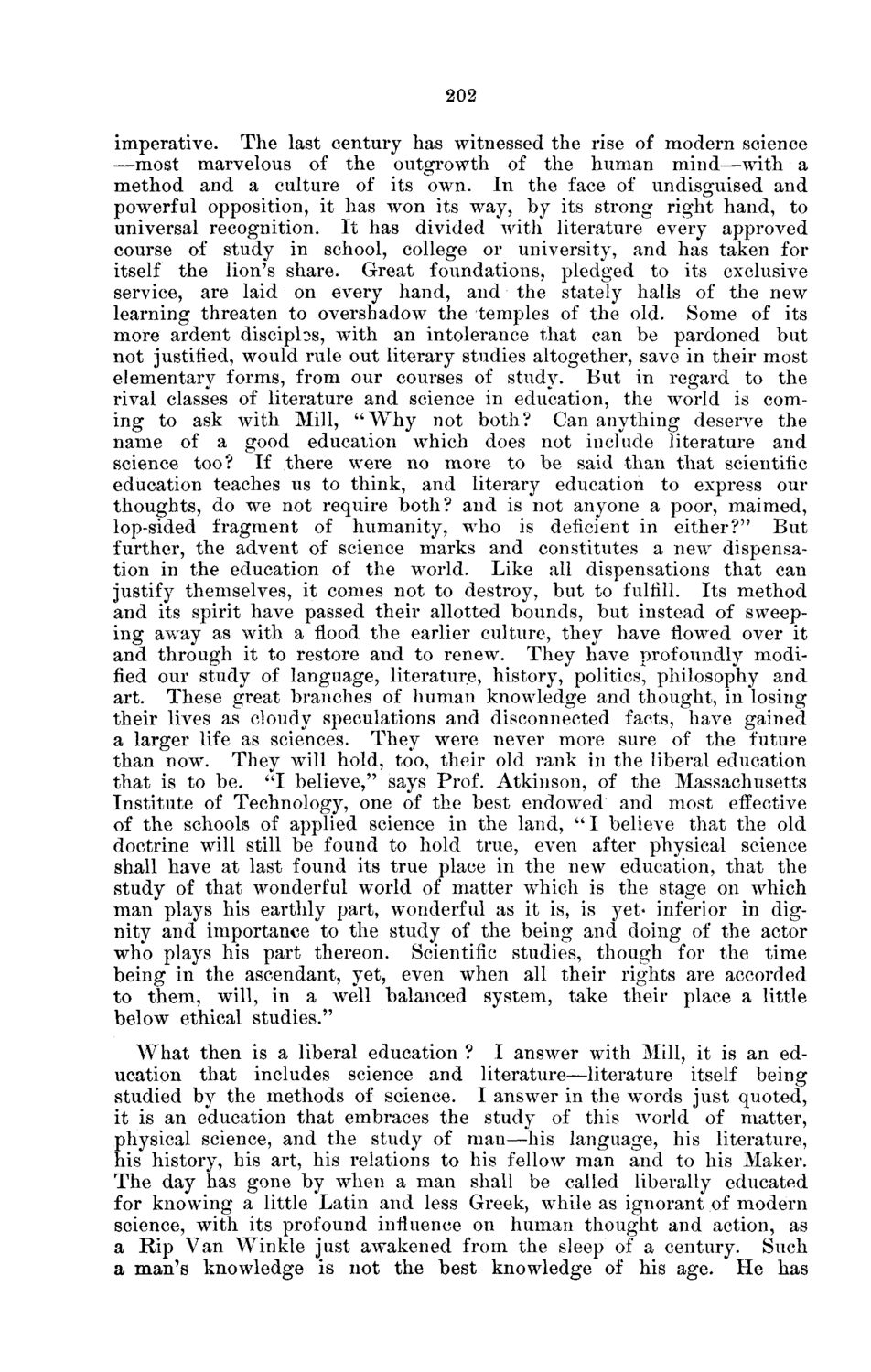| |
| |
Caption: Board of Trustees Minutes - 1878
This is a reduced-resolution page image for fast online browsing.

EXTRACTED TEXT FROM PAGE:
202 imperative. The last century has witnessed the rise of modern science —most marvelous of the outgrowth of the human mind—with a method and a culture of its own. In the face of undisguised and powerful opposition, it has won its w^ay, by its strong right hand, to universal recognition. I t has divided with literature every approved course of study in school, college or university, and has taken for itself the lion's share. Great foundations, pledged to its exclusive service, are laid on every hand, and the stately halls of the new learning threaten to overshadow the temples of the old. Some of its more ardent disciplos, with an intolerance that can be pardoned but not justified, would rule out literary studies altogether, save in their most elementary forms, from our courses of study. But in regard to the rival classes of literature and science in education, the world is coming to ask with Mill, " W h y not both? Can anything deserve the name of a good education which does not include literature and science too? If there were no more to be said than that scientific education teaches us to think, and literary education to express our thoughts, do we not require both? and is not anyone a poor, maimed, lop-sided fragment of humanity, who is deficient in either?" But further, the advent of science marks and constitutes a new dispensation in the education of the world. Like all dispensations that can justify themselves, it conies not to destroy, but to fulfill. Its method and its spirit have passed their allotted bounds, but instead of sweeping away as with a flood the earlier culture, they have flowed over it and through it to restore and to renew. They have profoundly modified our study of language, literature, history, politics, philosophy and art. These great branches of human knowledge and thought, in losing their lives as cloudy speculations and disconnected facts, have gained a larger life as sciences. They were never more sure of the future than now. They will hold, too, their old rank in the liberal education that is to be. " I believe," says Prof. Atkinson, of the Massachusetts Institute of Technology, one of the best endowed and most effective of the schools of applied science in the land, " I believe that the old doctrine will still be found to hold true, even after physical science shall have at last found its true place in the new education, that the study of that wonderful world of matter which is the stage on which man plays his earthly part, wonderful as it is, is yet* inferior in dignity and importance to the study of the being and doing of the actor who plays his part thereon. Scientific studies, though for the time being in the ascendant, yet, even when all their rights are accorded to them, will, in a well balanced system, take their place a little below ethical studies." W h a t then is a liberal education ? I answer with Mill, it is an education that includes science and literature—literature itself being studied by the methods of science. I answer in the words just quoted, it is an education that embraces the study of this world of matter, physical science, and the study of man—his language, his literature, his history, his art, his relations to his fellow man and to his Maker. T h e day has gone by when a man shall be called liberally educated for knowing a little Latin and less Greek, while as ignorant of modern science, with its profound influence on human thought and action, as a Rip Van Winkle just awakened from the sleep of a century. Such a man's knowledge is not the best knowledge of his age. H e has
| |